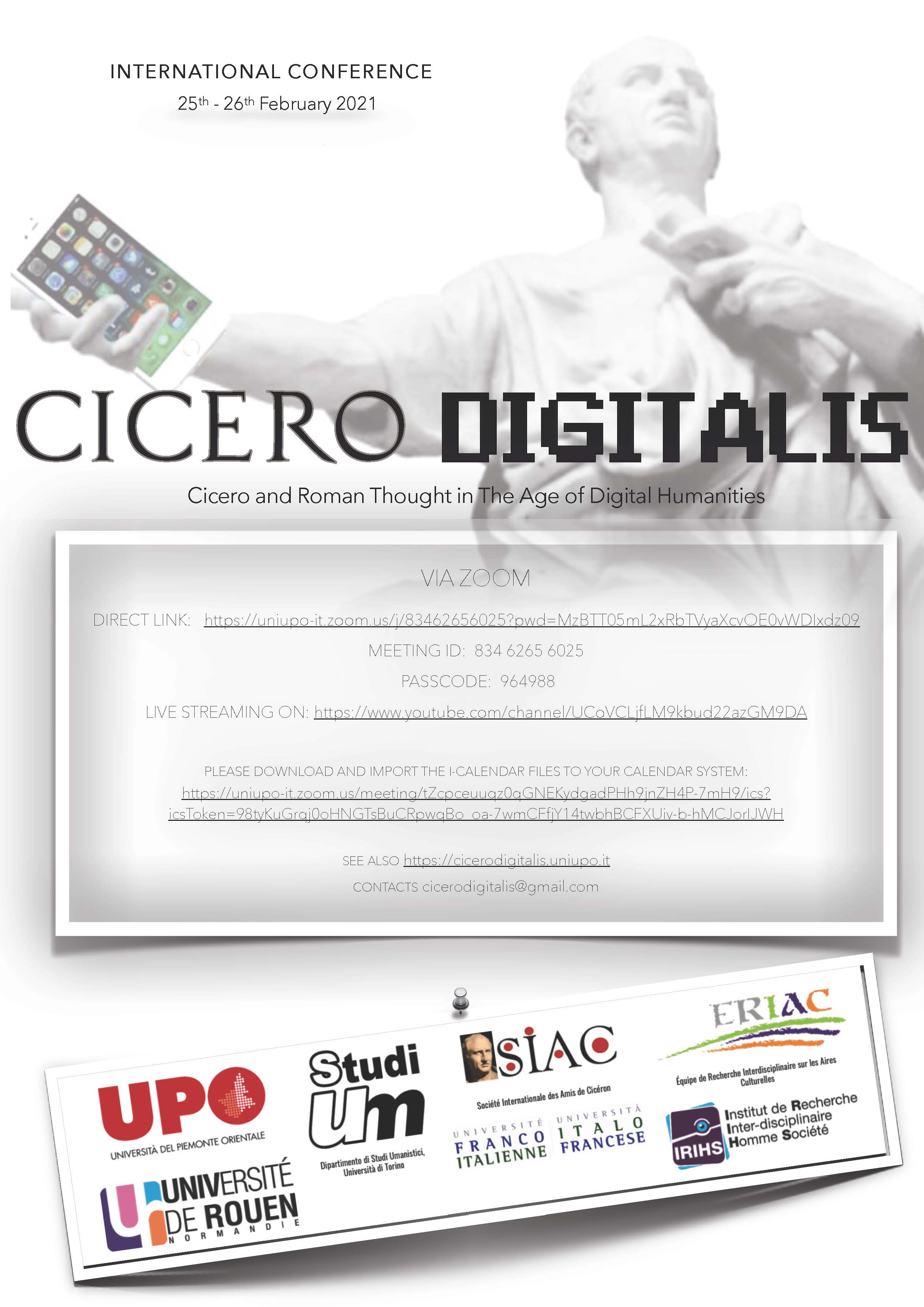«Cicero goes further»
Reflections on a New Digital Commentary on Cicero’s Pro Sexto Roscio Amerino
DOI:
https://doi.org/10.13135/2532-5353/6528Abstract
L’articolo presenta un nuovo commento digitale in olandese della Pro Sexto Roscio Amerino di Cicerone, nato dalla collaborazione tra cinque ricercatori olandesi. Analizza i suoi principi didattici e fornisce alcuni esempi dei diversi
livelli di informazione che si possono trovare. Inoltre, offre alcune analisi statistiche basate su un sondaggio tra gli utenti del commento.
Downloads
##submission.downloads##
Pubblicato
Come citare
Fascicolo
Sezione
Licenza
Gli autori che pubblicano su questa rivista accettano le seguenti condizioni:
- Gli autori mantengono i diritti sulla loro opera e cedono alla rivista il diritto di prima pubblicazione dell'opera, contemporaneamente licenziata sotto una Licenza Creative Commons - Attribuzione che permette ad altri di condividere l'opera indicando la paternità intellettuale e la prima pubblicazione su questa rivista.
- Gli autori possono aderire ad altri accordi di licenza non esclusiva per la distribuzione della versione dell'opera pubblicata (es. depositarla in un archivio istituzionale o pubblicarla in una monografia), a patto di indicare che la prima pubblicazione è avvenuta su questa rivista.


 Ciceroniana On Line è riconosciuta dall'ANVUR (Agenzia Nazionale di Valutazione del sistema Universitario e della Ricerca) come rivista di CLASSE A per le Scienze dell’antichità, filologico-letterarie e storico-artistiche (
Ciceroniana On Line è riconosciuta dall'ANVUR (Agenzia Nazionale di Valutazione del sistema Universitario e della Ricerca) come rivista di CLASSE A per le Scienze dell’antichità, filologico-letterarie e storico-artistiche ( La rivista è inclusa in DOAJ. L'elenco delle riviste DOAJ è disponibile all'indirizzo
La rivista è inclusa in DOAJ. L'elenco delle riviste DOAJ è disponibile all'indirizzo  La rivista è indicizzata in
La rivista è indicizzata in  La rivista è inserita in ERIH PLUS. L'elenco ERIH PLUS delle riviste è disponibile all'indirizzo
La rivista è inserita in ERIH PLUS. L'elenco ERIH PLUS delle riviste è disponibile all'indirizzo 

